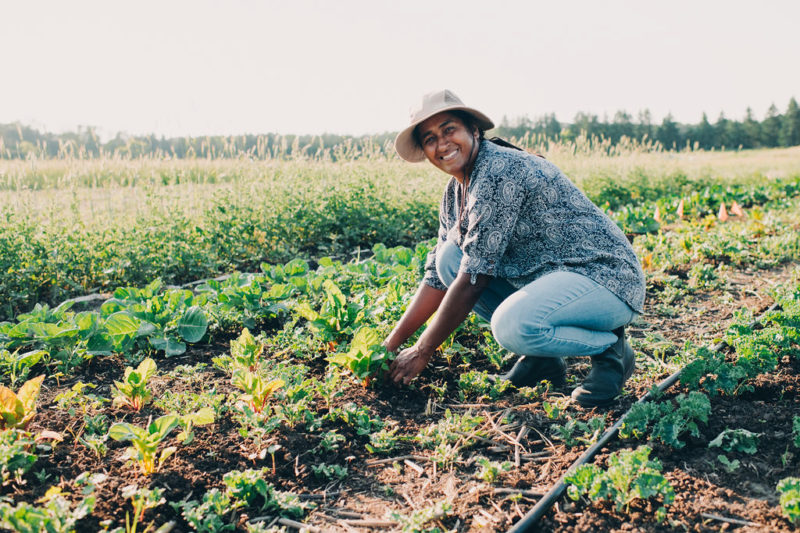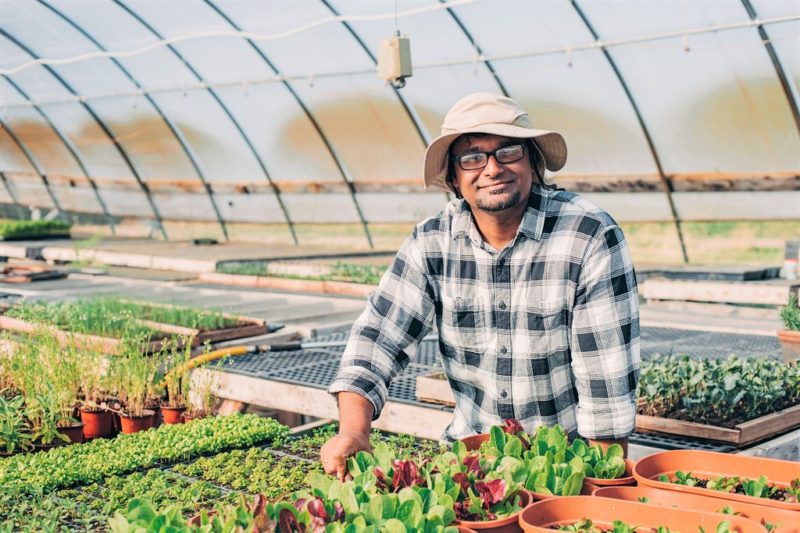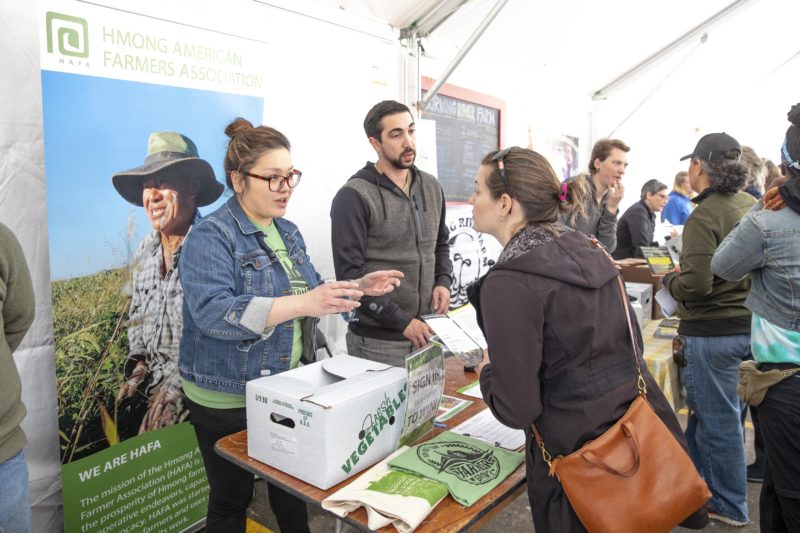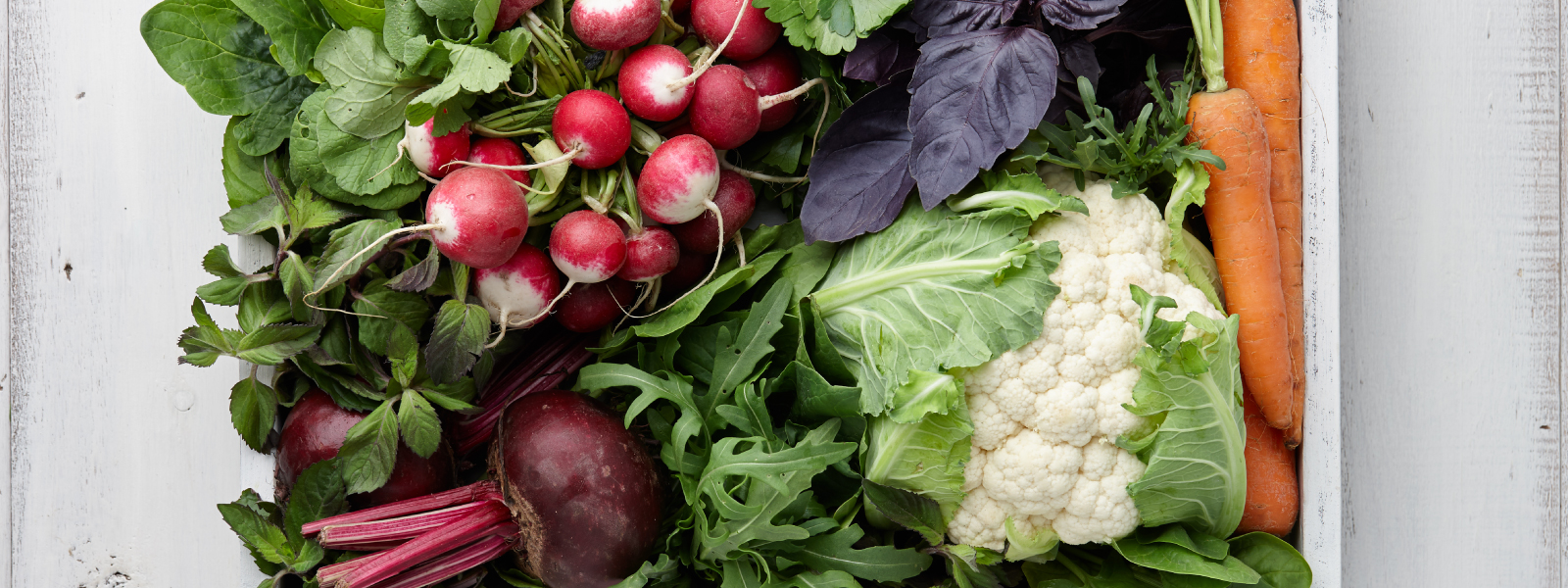Seward Co-op’s 22nd Annual CSA Fair is on the horizon, and we can’t wait. As representatives from local farms gather to sell shares of their crops, we ask: What do we strive collectively for our food system to be? How do we get there?
From CSA to Seward Co-op
How Community Supported Agriculture Helps Create the Food Systems We Want

Vedha Reddy’s The Hidden Paradise Farm is one of this year’s fair participants. Vedha, who grew up spending summers on her grandparents’ farm in India, says this year is all about consistency and distribution for her farm. As a small-scale producer, Vedha was very aware of the obstacles to getting her business started. Ultimately, her goal of bringing resilience and self-reliance to the local food system found a good match in the values at Big River Farms, an incubator farm that provides historically underrepresented groups with access to farmland, education, and markets.
Less than 40 miles from the Twin Cities, Big River Farms is currently in the midst of the education phase of its farmer program, which focuses on both agriculture and business. The business side is crucial, especially when it comes to learning about CSAs, which allows small-scale farmers to develop and maintain relationships with supporters. Another Big River farmer, Jacob Daniel, says, “For small [-scale] farmers it’s all about building relationships.”
Jacob, who will also be at our fair, is starting his first season of CSA. He knows that “Being able to produce good crops is just as important as finding markets.” A major challenge for small-scale farmers moving into wholesale is not only being able to produce the quantity required, but also to familiarize people with the quality of their brand. This makes working with co-ops appealing to Jacob, as they focus more on small-scale farmers. So how does one make the leap from CSA to wholesale?

Aiesha Babu, Seward Co-op’s Fresh Departments Buyer, is the point of contact for farmers like Jacob and Vedha to work at a larger scale (you’ll find their produce on our shelves this season!). As Aiesha explains, CSAs are often a path to wholesale, as they offer an opportunity for farmers to learn what they’re good at growing, upscale their quantity, and practice delivering consistent quality. When it comes time to make an agreement with farmers, Aiesha says that quality and storytelling are very important. And, if it’s a bad week in the fields? Aiesha says: “Farmers appreciate that we have their back[s].”

Seward Co-op is committed to working within diverse, local, sustainable markets whenever possible. Whether it’s making the decision to buy more varied produce, sourcing from new small-scale farms, or hosting a CSA Fair to showcase and invest in the health of our local food economy, we are dedicated to helping build a food system that values inclusivity, environmental responsibility, equity, and access. Attend our CSA Fair to see these values in action!
Join us for Seward Co-op’s annual Community Supported Agriculture (CSA) Fair + Welcome Party for Ray Williams, Seward Co-op’s new General Manager!
Join us in the parking lot of the Creamery building on Saturday, April 29 from 11:00 a.m. – 2:00 p.m. to learn about local farms and speak directly with nearly 30 farmers to choose a CSA share that is right for you and your household.
For full details, visit the 2023 CSA Fair page below and browse the online CSA Guide.
